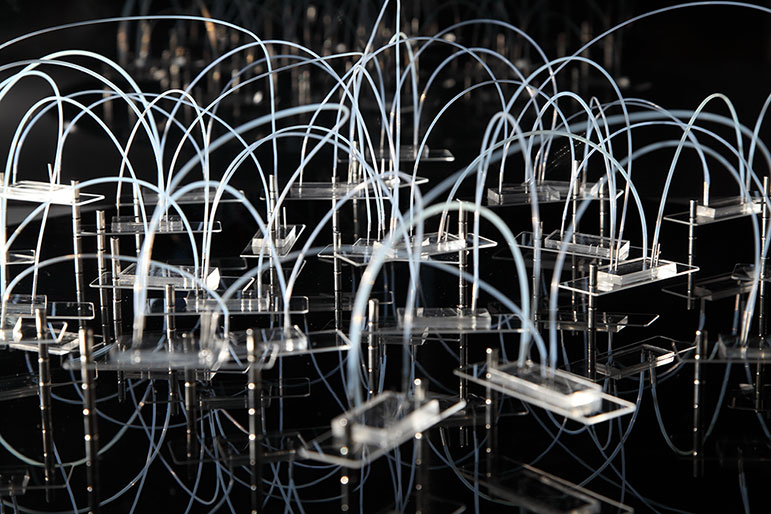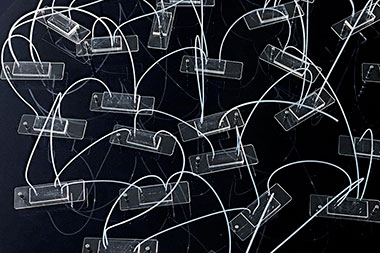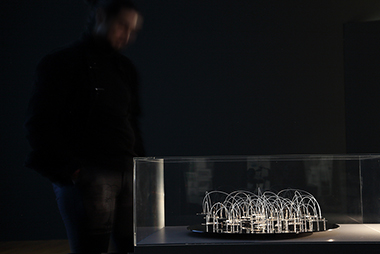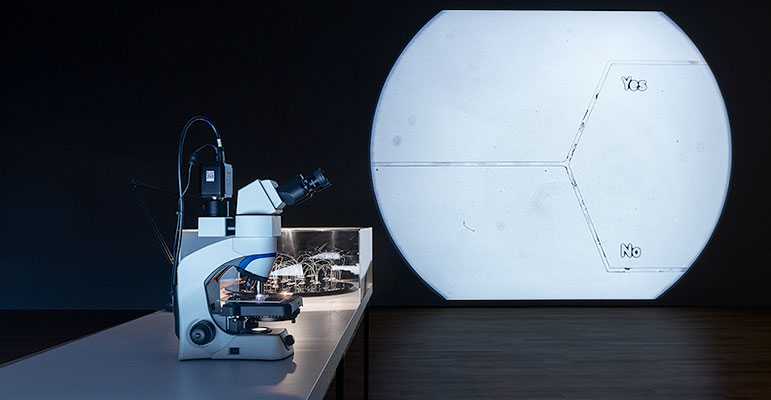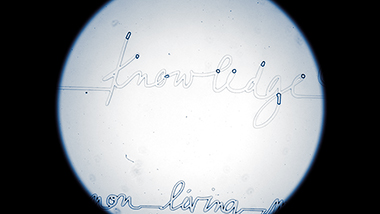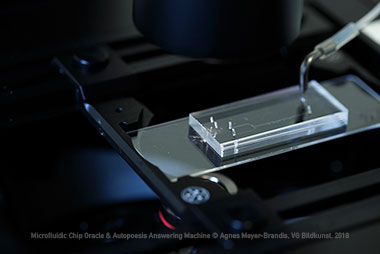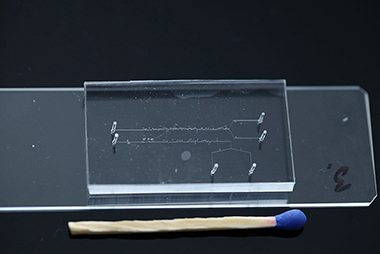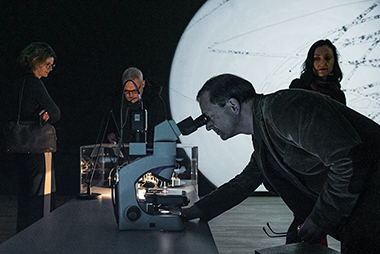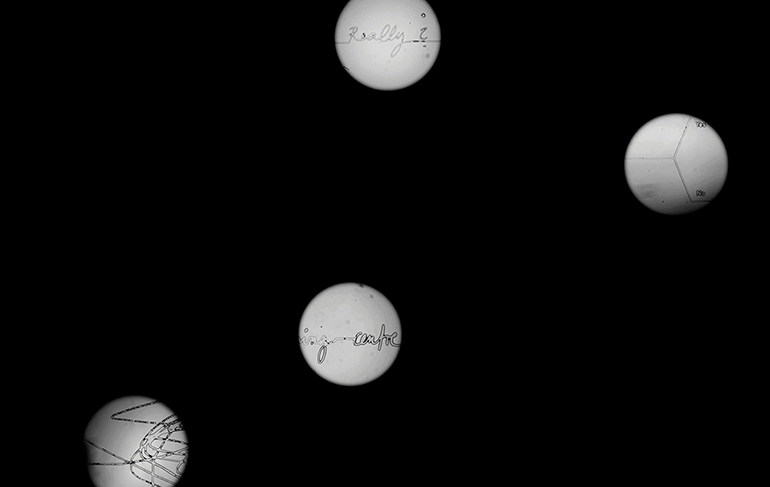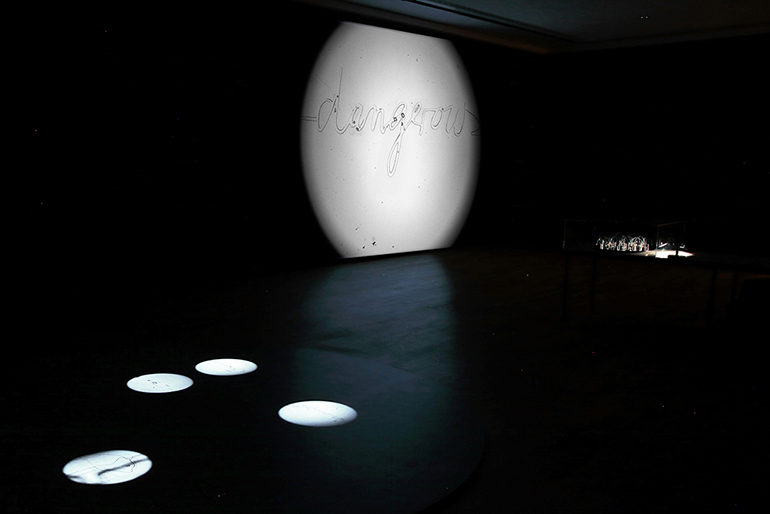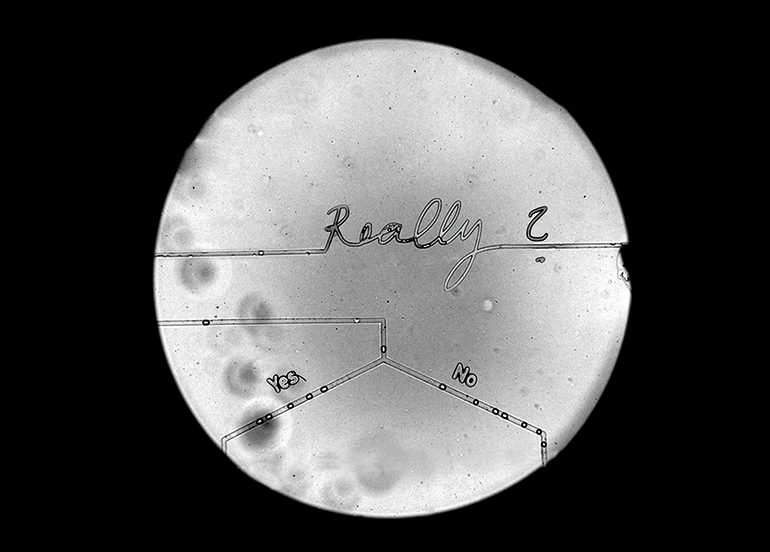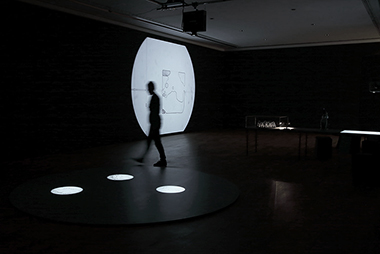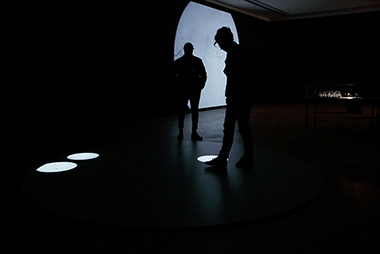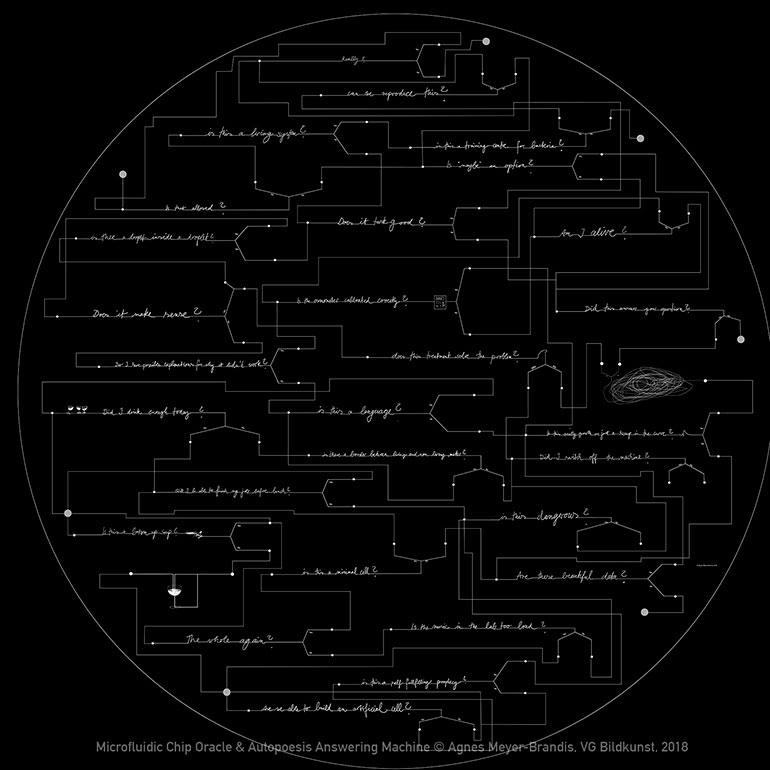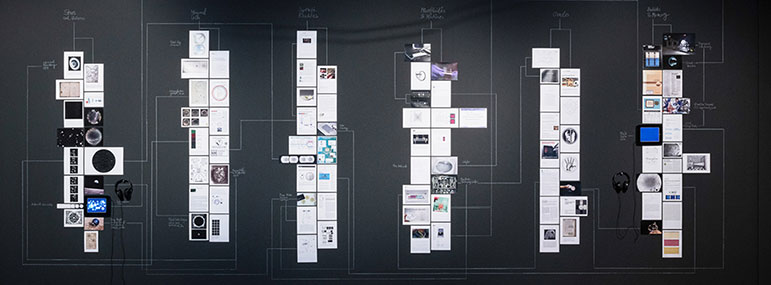| Agnes Meyer-Brandis / home | ||
Microfluid Chip Oracle & Autopoesis Answering Machine from ResearchRaft on Vimeo.
Microfluid Oracle Chip & Autopoesis Answering Machine (MOC&AAM) |
||
|
MOC&AAM is the result of an artistic investigation of processes developed in cooperation with the laboratories for synthetic biology at the Max Planck Institute. The oracle essentially consists of a network of interconnected microfluidic chips. In general, those chips contain tiny sub-millimeter channels allowing liquids and droplets to pass through them. In this particular case those channels are composed of a multitude of microscopic handwritten questions put down by the artistís hand. The droplets within the liquids have been specifically fabricated: They are so-called ĎGUVís, with a polymeric coating, which are used to study the function of biological membranes and to build artificial cells. In the first realisation most of the questions have been addressed by the participating scientists (Universe of Questions #01). Some aim at solving fundamental scientific riddles (Can we reproduce this?), other simple everyday life problems (Will I finish my job before lunch?). At the end of each question the droplets either turn towards the word YES or NO, and they continue their journey towards the next question. Version #7 is based on a conversaiton with ChatGTP. I asked what unanswered question it would have if it would have some questions at all. Neverminding the self proclaimed limits of the Chat gtp all these questions (Have you ever experienced a power outage? / Are you currently wearing socks?...) can be answered by the oracle machine. In a seperate conversation they will be given back to the AI. |
|
Microfluidic Oracle Chip, installation view, Kunstmuseum Bonn, 2019 |
||
|
Installation views, Kunstmsueum Bonn, De, 2019 |
||
|
||
|
||
